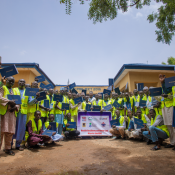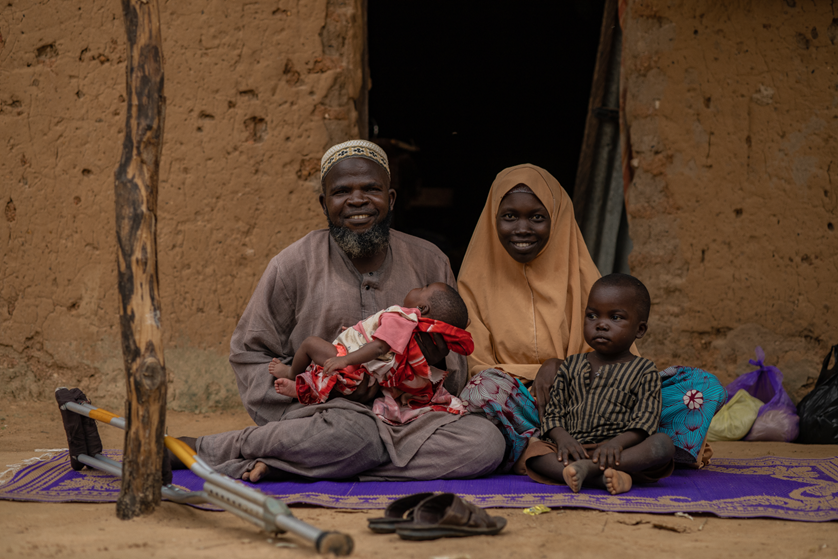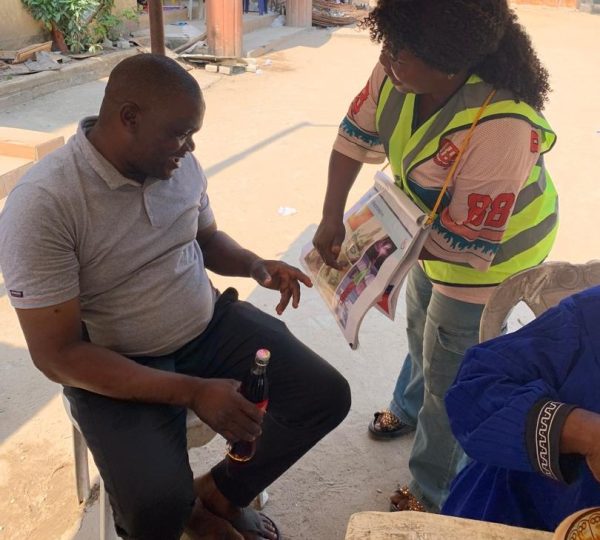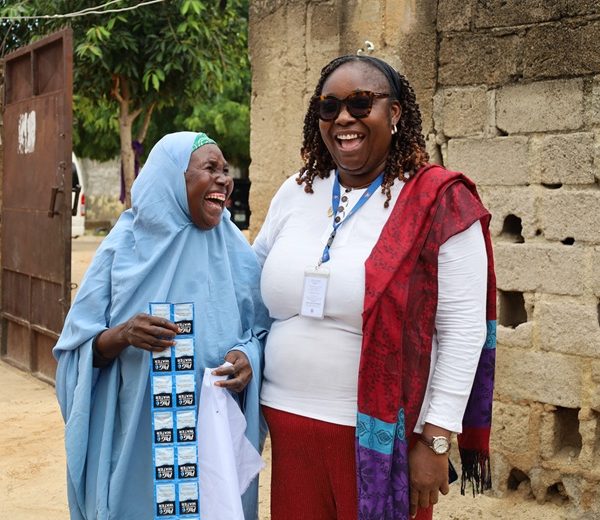Emergency Transport Scheme (ETS): A Lifesaver in Security Challenged Areas
By Bashir Adamu Bashir, Ismail Auwal and Rx. Abare Galadima
Rabi Adamu Idris is a full-time housewife in her early 30s, married to Idris Mallam Saleh. They are Ngamu by tribe and live in the Jigawa community. Her husband’s means of livelihood is the repair and sale of second-hand phones. He has no formal education but speaks English fairly well because he worked as a driver for Daily Trust in Abuja. In December 2011, his career as a driver ended due to an accident that claimed his legs. Since then, he has resolved to earn a living in the phone market in Potiskum.
Jigawa community is located in the suburban area of Potiskum, the most populous LGA in Yobe State, with an estimated population of 483,346 as of 2022. Due to the insurgency incidents in the LGA that started in 2009, movement became restricted by the security forces, particularly in the evening. Motorcycle use is banned, and tricycles and other commercial vehicles operate strictly from 6:00 am to 10:00 pm.
On July 31, 2023, at around 11:20 PM, Rabi went into labor. During an interview with Bashir, the Documentation and Communication Coordinator of the SFH-HeRON project, her husband, Idris, recounted his anxieties and the challenges they faced. He shared, ‘I was very scared, knowing that the community has sandy terrain, making it difficult for tricycles to operate. Adding to our worries, there was an evening curfew in place. I started contemplating how to transport her to the hospital since we had to trek a long distance to reach the main road. I immediately called my younger brother for help. He provided me with Muhammed Nangere’s contact information. I reached out to him, and he arrived around 11:45 AM, taking my wife to PHC Potiskum, where she successfully delivered our baby girl named Khadija’.
Muhammad Nangere, the volunteer driver, added that, due to his ETS skills of rushing emergency cases to the nearest health facility without delay, lifting, and handling patients, combined with the reflector jacket and tools provided by SFH-HeRON that serve as a means of identification, he is allowed to pass through military checkpoints and reach his clients. He further mentioned that Rabi is among the 549 pregnant women transported to health facilities from April 2022 to September 2023 through the Potiskum scheme.

The scheme was introduced to Yobe State by PRINN MNCH in 2010 and has been sustained by MNCH2, the LAFIYA PALLADIUM project, and subsequently transitioned to HeRON. To revamp the scheme, refresher trainings were conducted for over 350 volunteers in the state by the Society for Family Health (SFH) under the USAID-funded Health Resilience of North-East Nigeria (HeRON) project. The refresher enhanced the skills of the Emergency Transport System (ETS) volunteers to provide affordable, accessible, safe, and timely transportation for pregnant women during labor or obstetric emergencies, ensuring they reach the nearest health facility. The volunteers consist of members of the National Union of Road Transport Workers (NURTW) and private vehicle owners. From the inception of HeRON in April 2022 to December 2023, a total of 2942 women with pregnancy-related conditions were transported to health facilities to access services.
In Yobe State, HeRON supports the operationalization of the Yobe State Community-Based Medical Emergency Transport System (YEMABUS) and has incorporated its ETS/CTV drivers into the system for sustainability. The organization is Yobe State’s version of the National Emergency Medical Service and Ambulance System (NEMSAS), with a focus on minimising delays in access to emergency health care.
As a happy father of 5, Idris ensures that Khadija is undergoing vaccination. His wife practices exclusive breast feeding and has adopted a family planning (FP) method.





